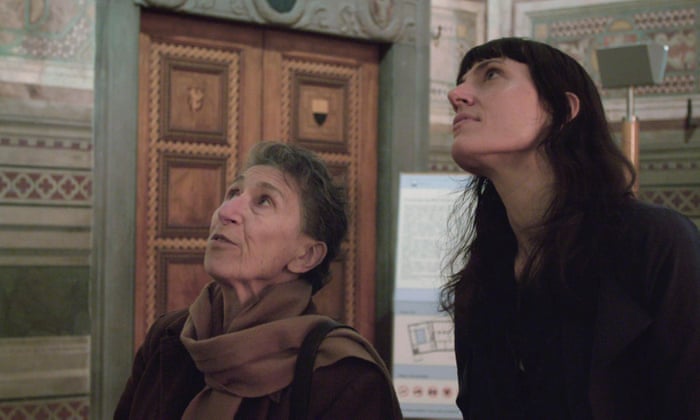
In the newly released Fall 2018 issue of Bookforum, filmmaker and activist Astra Taylor reflects on the voluminous reading she did while making her new documentary film, What Is Democracy?, in which Taylor talks to refugees, theorists, activists, politicians, and everyday people from around the world about the titular question. As Taylor writes, in preparation for making the film she read dozens of philosophical, historical, and theoretical books on democracy, from Plato’s Republic to Wendy Brown’s Undoing the Demos. One big takeaway from this experience was that while democracy aims to be inclusive and egalitarian, the most well-known books on the topic are written by a very narrow subset of the population. Here’s an excerpt:
Troublingly, most of the big books on the theme of self-rule uphold the image of democracy—both doing it and writing about it—as primarily a male business. Even more worryingly, the same trend holds true for the spate of democracy-in-crisis books that have been published since the 2016 election, with Madeleine Albright’s recent Fascism: A Warning (another book I confess I haven’t read) appearing as a proverbial exception that proves the rule. The People vs. Democracy, The Road to Unfreedom, Can It Happen Here?: Authoritarianism in America, Anti-Pluralism: The Populist Threat to Liberal Democracy, The Soul of America: The Battle for Our Better Angels, Trumpocracy: The Corruption of the American Republic, It’s Even Worse Than You Think: What the Trump Administration Is Doing to America, How Democracy Ends, and many more—all these books, fresh off the presses, are authored by men of a certain race and class. In crisis is opportunity, as they say, I suppose (or at least a book deal). While I’m sure some of the volumes listed above are perfectly good or at least decent, the handful I’ve read have left me rather perplexed—consider, for example, How Democracies Die, written by two esteemed liberal scholars whose conclusion includes the hard-hitting observation that Republicans need to fix their party (I’m sure conservative strategists are taking note). What I found odd was the way the alarmism that drives these books coexists with a sense that our political system basically works—or did, as recently as two or three years ago—and that if norms can be upheld, inequality magically kept in check, and reason respected once again, the nation can be put back on track and the slow forward march of progress can continue.
Such an assessment stands in stark contrast to the work of many women political theorists I admire. While it’s hard to generalize about these thinkers, who come from various and often conflicting intellectual traditions, none of them are facile in their analysis or prescriptions. Chantal Mouffe (The Democratic Paradox), Jodi Dean (Democracy and Other Neoliberal Fantasies and Crowds and Party), Bonnie Honig (Democracy and the Foreigner and Public Things: Democracy in Disrepair), Carole Pateman (Participation and Democratic Theory and The Sexual Contract), Jane J. Mansbridge (Beyond Adversary Democracy), Seyla Benhabib (Democracy and Difference), Danielle S. Allen (Talking to Strangers: Anxieties of Citizenship Since Brown v. Board of Education and Our Declaration: A Reading of the Declaration of Independence in Defense of Equality), Keeanga-Yamahtta Taylor (From #BlackLivesMatter to Black Liberation and How We Get Free: Black Feminism and the Combahee River Collective), and quite a few others informed my thinking as I worked on my film and still do. None of them shy away from the complexity, contradictions, possibilities, and profound (perhaps fatal) flaws of the modern-day democratic project.
Some of these theorists made it into my film. My dialogue with Wendy Brown, whose Undoing the Demos I reviewed in these pages, was pivotal. We spoke about the ascension of neoliberal market logic as a new form of minority rule, and lingered on Rousseau’s famous paradox: How do you make democracy out of an undemocratic people? In Miami I filmed a rousing lecture delivered by Angela Y. Davis that touched on her brilliant Abolition Democracy. With a few powerful lines and a tribute to W. E. B. Du Bois, she was able to convey the depth of change—the abolition of mutually reinforcing structures of racism and capitalism—that will be necessary if we want our society to live up to a word that expresses the deceptively simple idea that the people rule.
Image: Silvia Federici and Astra Taylor, from Taylor’s new film What Is Democracy? Via The Guardian.